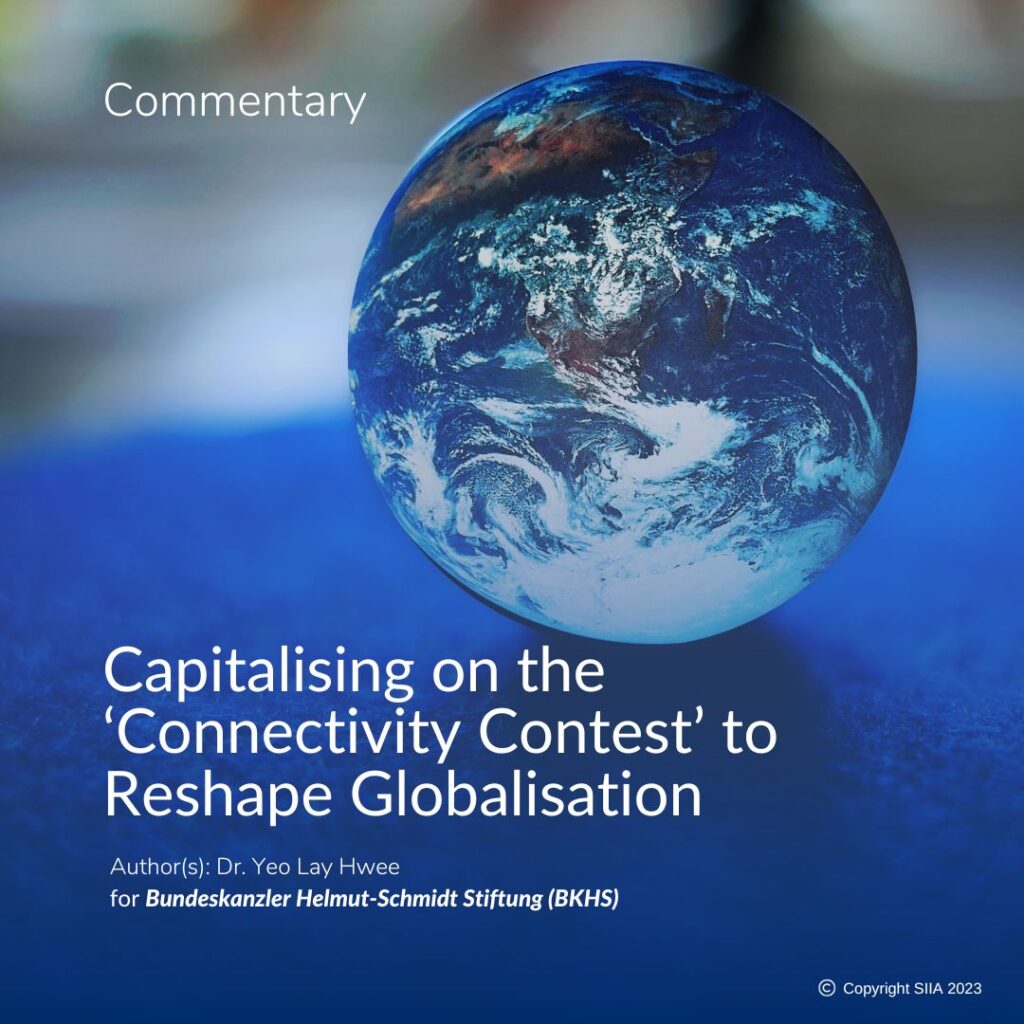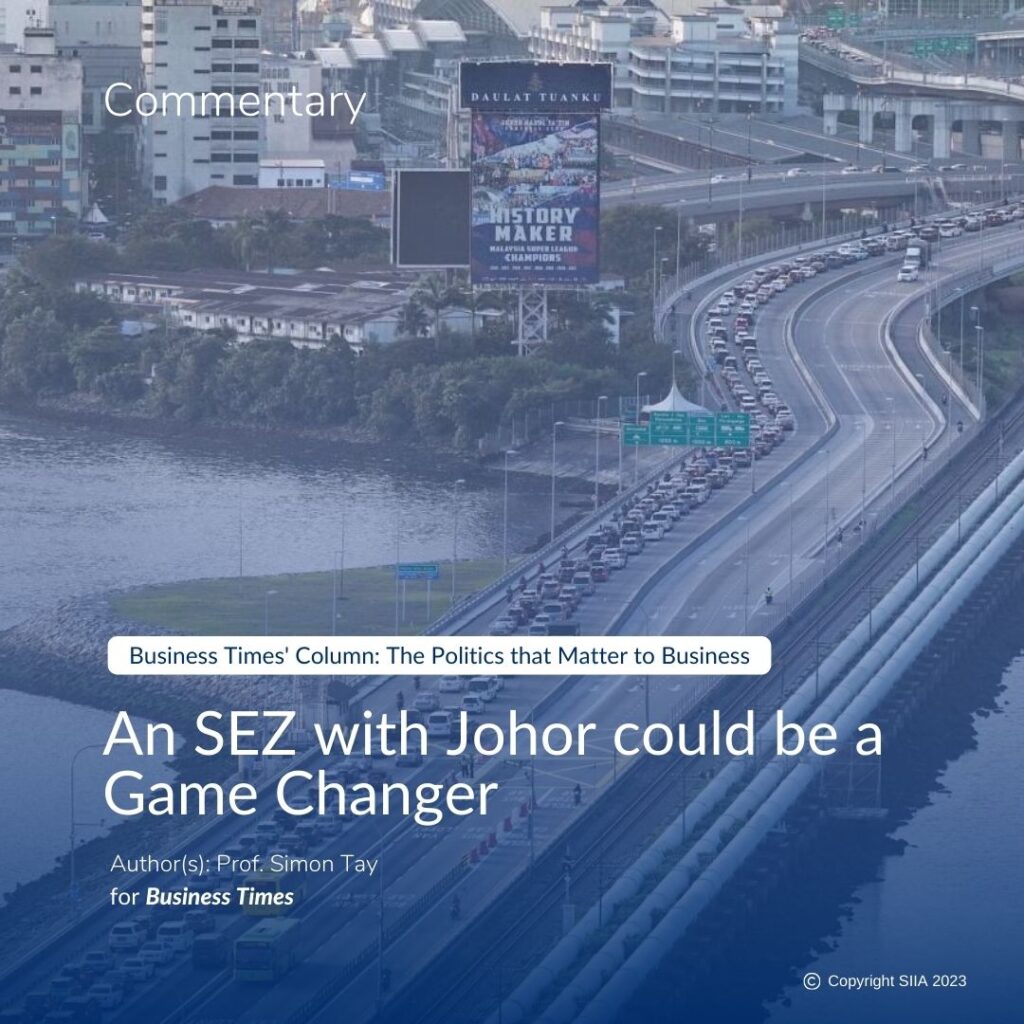By Chia Siow Yue
In Singapore, the Committee on the Future Economy (CFE) Report has been released. It recommends strategies to respond to external challenges such as subdued global growth, rapid technological change, political uncertainty and rising anti-globalisation. Despite these disruptive developments, the CFE argues Singapore can capitalise on its strengths and seize opportunities in Asia.
The CFE envisages a Singapore where people have deep skills and pursue life-long learning; local businesses are innovative; Singapore is a vibrant global city open to trade, people and ideas; and the government is coordinated, inclusive and responsive. The CFE’s strategies are long-term, broad and mutually-reinforcing, capitalising on Singapore’s strengths in leveraging external resources, external markets and geographical location.
As a small, open economy, Singapore must track emerging trends and respond pragmatically, as it has for decades. But this time the hurdles are higher, calling for a transformation of enterprise and skillsets. Local businesses have had to face competition from multinational corporations and state-owned enterprises. They must now face the uncertain challenges of disruptive technological change and the increasing need to venture and expand overseas. Singaporean professional and skilled workers have been diligently acquiring skills, but must now be more prepared to upskill for future unknown jobs and embrace lifelong knowledge.
Not all of the strategies the CFE lays out are path-breaking, many have been recommended and adopted by earlier strategic reviews. Still they are bold and comprehensive.
Singapore’s small and resource-poor economy necessitates a continuing policy of globalisation and regionalisation. To facilitate this, the CFE has three noteworthy recommendations. First, as the United States and Europe experience growth slowdowns and become more protectionist, Singapore needs to focus more on the still dynamic Asian economies with their rapidly rising middle class and urbanisation.
Second, the report advises establishing a Global Innovation Alliance, which is a network to promote innovation and harness new ideas. It envisions Singapore’s tertiary institutions and enterprises linking up with overseas partners in major innovation hubs and key markets to form ‘innovation launch pads’ to foster cooperation between Singaporean and foreign start-ups, or to serve as ‘welcome centres’ where Singaporean enterprises and institutions can collaborate with overseas partners. Third, the report emphasises focussing on infrastructure connectivity to enhance Singapore’s hub positions in aviation, maritime, logistics and communications.
With technological disruptions set to characterise the labour market for in years to come, Singaporean workers need to develop deep skills and embrace lifelong learning. The issue of Singaporean professionals, managers, executives and technicians losing their jobs and needing reskilling will be a growing challenge.
The government has already revamped the educational curriculum and put in place the SkillsFuture scheme. The CFE further recommends implementing modularised training for working adults, integrating skills training under different qualifications frameworks, further incentivising employers to invest in worker training and creating an education and guidance portal. Singapore must also continue to augment local talent with foreign talent, particularly for specialised skillsets.
To bolster Singapore’s corporate sector, the CFE recommends strengthening the innovation ecosystem, supporting enterprises to adopt digitalisation and scale up and catalysing the private sector to provide more growth capital. These issues and recommendations have also been made in earlier strategic reports but need further push. Past and existing local enterprise support schemes have not been comprehensive or well-coordinated.
There is certainly a strong case for the establishment (albeit somewhat late) of a one-stop agency to troubleshoot for and promote local enterprises, modelled after the Economic Development Board that has been highly successful in doing the same for foreign multinational corporations in Singapore. The proposed board should initiate, coordinate and collaborate in helping local enterprises build their financial, managerial, technological, digital and marketing capabilities — particularly in expanding overseas.
The CFE identifies potential gains from enhanced collaboration between Singapore’s big companies and its small and medium enterprises. In this regard, perhaps Singapore needs to learn from the corporate cultures in Japan, South Korea and Taiwan, all of which have well-known and successful collaborations.
Finally, the CFE recommends implementing Industry Transformation Maps (ITMs) — a government-designed roadmap for the development of each economic sector. The CFE argues against an industrial policy of picking winners, particularly in a world of geopolitical and economic uncertainties and technological disruptions. Yet its advocacy of ITMs and targeted clustering smacks of activist industrial policy.
Six ITMs have already been launched and will eventually cover 23 industries and some 80 per cent of the Singapore economy. The problem is future industries will not emerge from clearly defined sectors — as such, ITMs are best identified by the private sector, with the government providing an enabling environment.
The CFE Report provides broad directions to guide Singapore’s economy into the future. Effective and timely implementation is essential to achieve a successful outcome. The newly unveiled Singapore Budget contains many new details and financial provisions to support their implementation.
ABOUT THE AUTHOR
Chia Siow Yue is a Senior Research Fellow at the Singapore Institute of International Affairs. This commentary was published by East Asia Forum on 22 Feb 2017.




